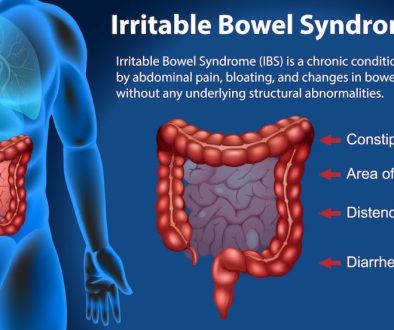How to Choose the Best Probiotic for Seniors: A Guide to Gut Health, Immunity, and More
As we age, our bodies undergo numerous changes, including shifts in gut health that can impact digestion, immunity, and overall wellness. Probiotics—beneficial bacteria that support a healthy gut microbiome—are increasingly popular among seniors looking to improve their digestive health, boost immunity, and even support cognitive function. However, with countless probiotic options on the market, selecting the right one can be a challenge. Here’s a guide to help seniors choose the most suitable probiotic supplement for their needs.
Why Probiotics Are Beneficial for Seniors
As we age, our bodies become more susceptible to changes in gut health due to factors like reduced stomach acid, slower digestion, and the potential for nutrient deficiencies. These changes can lead to common issues such as constipation, bloating, and weakened immunity. Probiotics can help restore balance in the gut, providing various benefits, including:
- Improved Digestion: Probiotics help break down food and absorb nutrients, reducing digestive discomfort like gas and bloating.
- Enhanced Immunity: A strong gut microbiome is essential for immune function, helping protect against infections and illness.
- Better Nutrient Absorption: Certain probiotics can improve nutrient uptake, which is particularly helpful for seniors prone to deficiencies.
- Cognitive Support: The gut-brain axis connects gut health to mental clarity and mood, and certain strains of probiotics can support brain health and focus.
Key Factors to Consider When Choosing a Probiotic for Seniors
1. Identify Specific Health Goals
Consider what health concerns are most pressing. Seniors may need probiotics that focus on:
- Digestive Health: Look for probiotics with strains that target digestion, like Lactobacillus acidophilus or Bifidobacterium longum.
- Immune Support: Lactobacillus rhamnosus and Lactobacillus casei are known for their immunity-boosting properties.
- Cognitive Function: For mental clarity, Bifidobacterium breve and Lactobacillus helveticus are effective for supporting the gut-brain connection.
Choosing a probiotic that aligns with specific needs will help ensure the supplement is effective for the intended purpose.
2. Opt for Multi-Strain Formulas
Single-strain probiotics can be effective, but multi-strain options provide more comprehensive support. Different probiotic strains have unique roles, and a diverse blend ensures that multiple aspects of health—such as digestion, immunity, and mood—are addressed simultaneously.
3. Check CFU Count
Colony Forming Units (CFUs) indicate the number of live bacteria in each dose. For seniors, a moderate CFU count—between 5 to 10 billion—is generally effective without overwhelming the gut. However, those with specific digestive issues might benefit from a higher CFU count. It’s best to consult a healthcare professional to determine the ideal dosage.
4. Consider the Form and Convenience
Probiotics come in various forms, including capsules, powders, and liquids. For seniors, convenience is key. Capsules or chewable tablets are often the easiest to incorporate into daily routines, while powders might be ideal for those who have difficulty swallowing pills.
5. Look for Added Prebiotics
Prebiotics are dietary fibers that feed probiotics, helping them thrive in the gut. Some probiotic supplements include prebiotics for added effectiveness, often labeled as “synbiotics.” This combination can enhance the longevity and impact of the beneficial bacteria, making it a valuable feature in a probiotic supplement.
6. Choose a Reputable Brand
Selecting a high-quality, reputable brand is essential. Look for products that are:
- Third-Party Tested: Ensures the product meets quality standards.
- Free from Additives: Avoid fillers, artificial colors, and preservatives that can irritate the gut.
- Manufactured in cGMP Facilities: Ensures adherence to strict quality and safety standards.
Brands with positive customer reviews and transparency about their ingredients are generally more trustworthy.
Probiotic Strains to Look for in Senior-Specific Formulas
While probiotics for seniors don’t necessarily require different strains than other age groups, certain strains are particularly helpful for age-related concerns:
- Bifidobacterium bifidum: Known for aiding digestion and promoting regularity.
- Lactobacillus acidophilus: Helps with lactose intolerance and immune health.
- Bifidobacterium lactis: Reduces inflammation and supports immune function.
- Bifidobacterium longum: Effective for reducing symptoms of irritable bowel syndrome (IBS) and improving regularity.
Tips for Taking Probiotics Effectively
- Start Slowly: Begin with a lower dose and gradually increase to give the body time to adjust.
- Take with Food: Many probiotics work best when taken with a meal, as this provides an environment that helps the bacteria survive the stomach’s acidic conditions.
- Be Consistent: Regular use is key to experiencing the full benefits of probiotics. Consider setting a daily reminder to ensure consistent intake.
- Monitor Results: Note any changes in digestion, energy, or immunity to evaluate if the probiotic is effective. Results may take a few weeks, so be patient.
Potential Side Effects
While probiotics are generally safe, some individuals may experience mild side effects, especially in the beginning. These may include bloating, gas, or changes in bowel habits. These symptoms typically resolve as the body adjusts. If any side effects persist or worsen, consult a healthcare professional.
Our Final Thoughts
For seniors looking to support their digestive health, boost immunity, or even enhance mental clarity, a high-quality probiotic can be a powerful addition to their wellness routine. By choosing the right strain, CFU count, and reputable brand, seniors can experience a range of health benefits tailored to their unique needs. Remember, always consult a healthcare professional before starting any new supplement, especially if you have existing health conditions or take medications.




